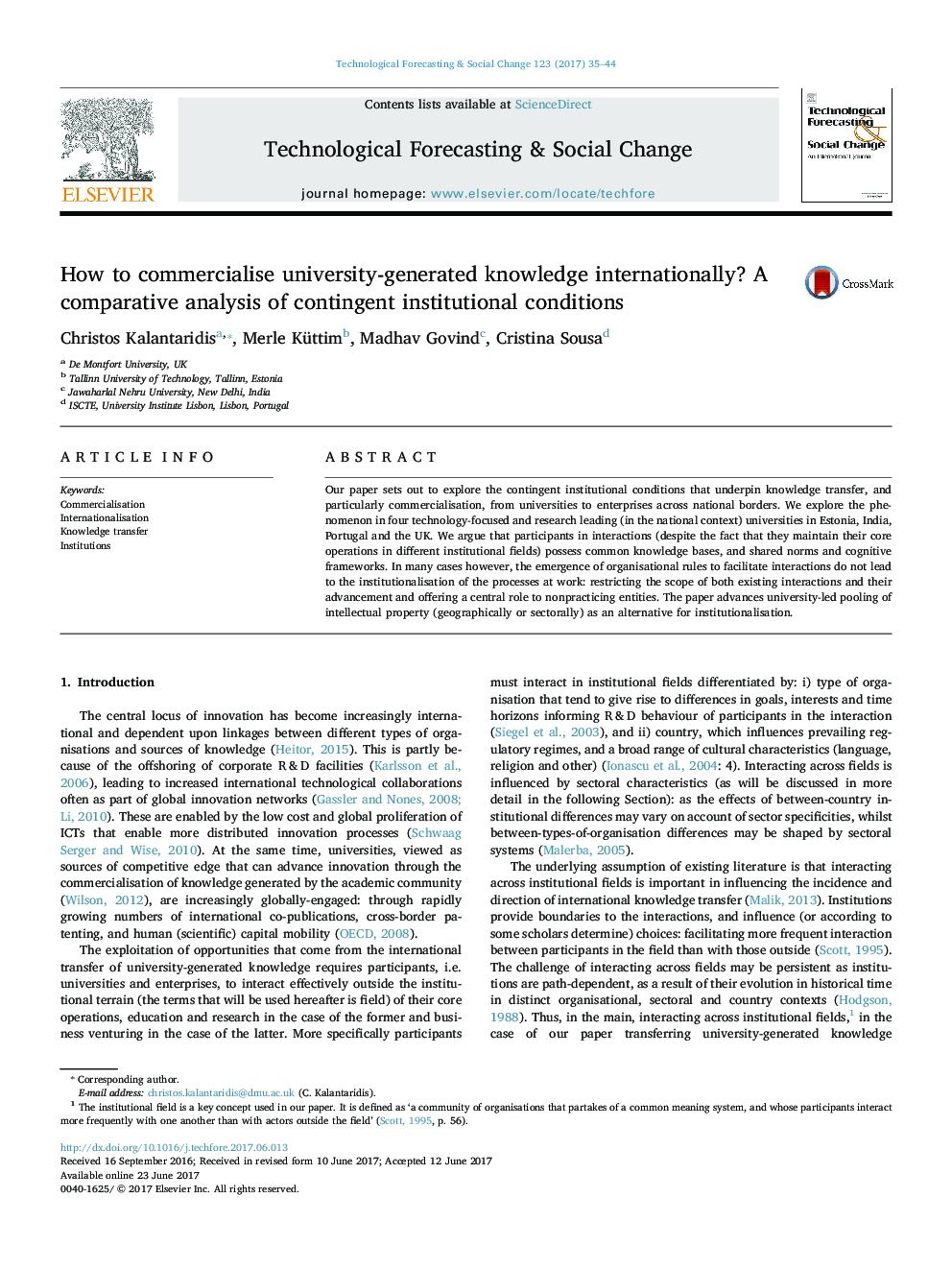| Article ID | Journal | Published Year | Pages | File Type |
|---|---|---|---|---|
| 5036798 | Technological Forecasting and Social Change | 2017 | 10 Pages |
â¢Identify institutional factors that facilitate the international commercialisation of university generated knowledge.â¢Eight case studies from four countries: Estonia, India, Portugal and the UKâ¢Participants possess common knowledge bases, shared norms and cognitive frameworks.â¢Nonpracticing entities offered rule-governed setting for 'small' university commercialisation.â¢University-led pooling of IP an alternative to nonpracticing entities
Our paper sets out to explore the contingent institutional conditions that underpin knowledge transfer, and particularly commercialisation, from universities to enterprises across national borders. We explore the phenomenon in four technology-focused and research leading (in the national context) universities in Estonia, India, Portugal and the UK. We argue that participants in interactions (despite the fact that they maintain their core operations in different institutional fields) possess common knowledge bases, and shared norms and cognitive frameworks. In many cases however, the emergence of organisational rules to facilitate interactions do not lead to the institutionalisation of the processes at work: restricting the scope of both existing interactions and their advancement and offering a central role to nonpracticing entities. The paper advances university-led pooling of intellectual property (geographically or sectorally) as an alternative for institutionalisation.
